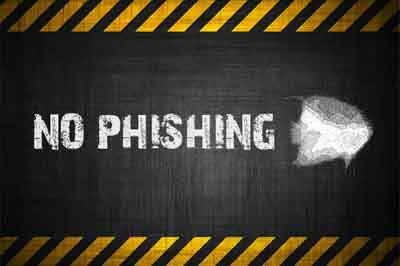- Home
- Malware Basics
- Best Computer Protection
Best Computer Protection | Keeping You Safe From Dangerous Computer Threats
The Best Computer Protection Guest Article is by Ken Wilson, Tech Guru and Security Specialist at the ThePCDoctor, Australia's Number 1 Computer Support Company.
You need the best computer protection advice available to keep yourself online in today's digital world. Ken's article covers the main areas computer users need to know.
Internet safety is a must, but how do you know where to start? With hacks and scams running rampant across the internet, it is no wonder you can feel overwhelmed thinking about protecting your data and your computer.
There are a few simple things you can do that will protect your computer and shield you from identity theft.
Keep up with the latest news and developments
Sign up to the eComputerZ Newsletter
The free A to Z of performing BIOS updates guide that anyone can follow.
✔ A checklist of important actions to perform throughout the update process.
✔ Further supporting information to aid your update plans.
✔ My unique approach for sourcing the latest BIOS versions for any motherboard manufacturer.
Sign up below for instant access to the guide, or by going to the Subscription page for more details.
I never share information with third parties and your details are secure.
I aim to issue newsletters at the start of each month.
Educate Yourself
The first place you should start for best computer protection is education. This is the best computer protection advice available. You need to know what kind of scams are out there, so you can avoid them.
If there are attachments in an email that look fishy, do not open them. This is one of the most common ways hackers spread malware, so if you are in doubt, better be safe than sorry.
Phishing scams are another popular hack out there. Phishing is when hackers pretend they are a legitimate company. PayPal experienced this not too long ago.
The hacker sends out an email with the company logo on it and even has a website setup for you to input your login name and password. Once you do this, they have access to your account.
 Best Computer Protection
Best Computer ProtectionNo Phishing Sign
If you are unsure the real company is sending you information or something doesn’t seem right, physically call the company. This is the best way to resolve a problem, and they will be happy to know there is a scam out there, so they can put an end to it.
Free software is another baiting tactic that hackers use. Do not install software that is free from the internet. Chances are it comes with malware, adware, and spyware.
Furthermore, do not give access to your computer to a third party. This is another way people will try to get your information.
Use A Firewall
A firewall is placed between your computer and the internet. It is either hardware or software and only allows the right types of data to cross the firewall.
You may be wondering if you have a firewall. If you have a router, you have one type of firewall that stops random networking internet threats from connecting to your computer.
A firewall is one of the best computer protection methods available today.
Scan For Malware
Malware can get into your computer in very sneaky ways. It can sneak in through email attachments, clicking on links, or downloading software.
Make sure you have a malware scanner installed on your computer to watch for any threats. As soon as it detects a threat, the scanner will remove them, making your computer safe again.
It is important not to download free malware software from the internet. It is a good idea to purchase it from a reputable company to be completely safe.
Furthermore, ensure your malware software is up-to-date. Install any updates and set the scan to every day. This way, you will not miss anything, and neither would your anti malware application.
Make Sure Your Network is Secure
Chances are you have a home Wi-Fi network set up, so you can access the internet remotely.
The network should be secure, meaning you need an access key and password to connect to it. If you do not, make one as soon as possible because anyone will be able to get into your network and retrieve your data.
While out and about, it is a good idea to use secure network connections when you are accessing your email or other online accounts. Secure connections, such as those with https, use encrypted connections, so they are harder to hack.
Best Computer Protection | Backup Your Information
If for some reason your computer happens to get hacked or becomes infected with malware, you want to be sure everything is backed up physically.
Make sure all of your data can be retrieved either through a cloud backup service or an external hard drive. In case anything happens, you will be happy you have your data easily retrievable.
Keeping your computer safe should be a top priority when surfing the internet or backing up your files. Furthermore, having anti malware and antivirus software installed adds an extra layer of protection. Take these tips and ise them to minimize threats, so you can browse safely.
- Home
- Malware Basics
- Best Computer Protection
